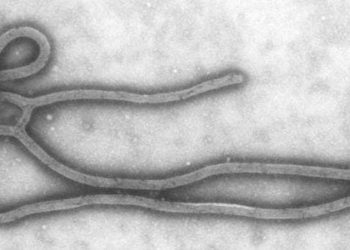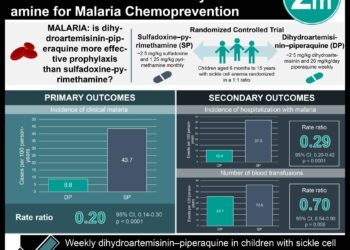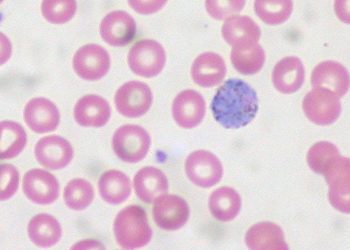Disruption of malaria treatment due to Ebola may increase malaria mortality
1. This modeling study showed that if malaria care were to have ceased as a result of the Ebola epidemic, an estimated 3.5 million additional untreated cases of malaria would have occurred in Guinea, Liberia, and Sierra Leone, leading to 10,900 malaria-attributable deaths.
2. If health systems in Guinea, Sierra Leone, and Liberia were to recover and Ebola transmission to decrease, a mass drug administration campaign would potentially lead to an estimated 40% reduction in malaria cases and deaths in the first six months of 2015.
Evidence Rating Level: 2 (Good)
Study Rundown: The 2014 Ebola epidemic devastated the already frail health systems in West African nations and diverted resources from existing initiatives to treat and control malaria. This modeling analysis study aimed to quantify the indirect burden of the Ebola virus disease and the potential benefit of a mass-administration treatment campaign in Guinea, Liberia, and Sierra Leone by estimating the number of malaria cases and deaths caused by diverting malaria treatment to the Ebola epidemic.
If malaria care were to have ceased in 2014 as a result of the Ebola epidemic, untreated malaria cases would have increased by 3.5 million total in Guinea, Liberia, Sierra Leone, or by 45% in Guinea, 140% in Liberia, and 88% in Sierra Leone. Additionally, if the Ebola epidemic caused the distribution of insecticide-treated bed nets to halt, 0.84 million more cases of malaria would emerge in 2014, or an increase in 9.5%. Distribution of insecticide-treated bed nets and mass drug-administration coinciding with the 2015 malaria season would potentially greatly diminish the effect of the Ebola virus on malaria initiatives. This was the first study of its kind to assess the effects of this particular mass drug administration campaign. However, the methods of this study may have omitted inherently important factors in the relationship between the Ebola epidemic and malaria transmission and control.
Click to read the study in The Lancet Infectious Diseases
Relevant Reading: Reduced vaccination and the risk of measles and other childhood infections post-Ebola
In-Depth [prospective cohort]: This mathematical modeling study used the most recent data from Demographic Health Survey (DHS), Malaria Indicator Survey (MIS), Delphi surveys, and the World Malaria Report to estimate the effect of diverting malaria treatment to the Ebola epidemic on malaria transmission, case numbers, and deaths. The effect of emergency mass drug administration was simulated to compare immediate initiation of the campaign to initiation at a time when malaria burden on the health-system was minimized over an entire year.
If the Ebola epidemic resulted in complete cessation of malaria treatment in 2014, it was estimated that the number of untreated malaria cases would have increased to 3.5 million overall (95% Credible Interval 2.6 million to 4.9 million), or by 140% (credible interval 135-147) in Liberia, 88% (83-89) in Sierra Leone, and 45% (43-49) in Guinea. Cessation of insecticide treated bed nets due to the Ebola epidemic was estimated to lead to an additional 0.84 million (0.80 million to 1.01 million) cases in 2014, corresponding to an increase of 9.5% (8.7-12.8). If the health system were to recover and Ebola transmission to decrease, the model estimated that a mass administration drug campaign could lead to a 40% reduction in malaria cases and deaths in the first six months of 2015. A campaign to replace all insecticide-treated bed nets that would return coverage to pre-Ebola levels would reduce the number of additional deaths due to bed net distribution by 65% (64-66).
Image: PD
©2015 2 Minute Medicine, Inc. All rights reserved. No works may be reproduced without expressed written consent from 2 Minute Medicine, Inc. Inquire about licensing here. No article should be construed as medical advice and is not intended as such by the authors or by 2 Minute Medicine, Inc.









